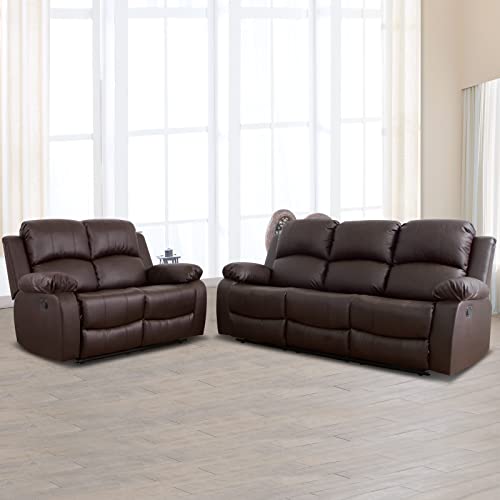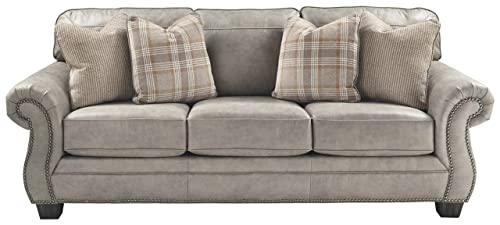10-Pinterest Accounts You Should Follow Real Leather Couch
Madonna
0
5
01.07 19:33
 How to Tell If a Leather Couch is Real Or Faux
How to Tell If a Leather Couch is Real Or FauxIt can be difficult to determine if you are purchasing genuine leather couches because of misleading product descriptions and price tags. You must get up close and personal - smell, feel and then turn over a couch to look at the back.
For example, a 'leather couch' CHOICE tested had upholstered 'contact' (such as the armrests and seats) with genuine leather. The 'non contact' areas were a mix of cotton and polyester coated.
1. Smell
A genuine leather sofa should smell natural, fresh and luxurious. Faux leather however typically smells chemically processed and artificial. If your couch is smelling bad smell, it could be caused by pet urine or stains. In most instances, a thorough cleaning will remove any smell. If you are not satisfied with the results of your cleaning, apply a leather conditioner. This will restore the leather's moisture levels, making it softer and less fragile. It will also make it more resistant to smells.
You can also make use of an organic odor eliminator like baking soda to eliminate unpleasant odors from your sofa. Mix equal parts vinegar and water, then employ a cloth (preferably microfibre) to clean the leather sofa. If the cloth begins to pick up dirt, squeeze it out or replace with a new one. You can also put the solution into spray bottles and spray it over your couch. Leave the mixture to dry before wiping it over again.
Airing your leather out is another natural way to get rid of smells. Place the sofa in a bright area to let it air. This will help eliminate unpleasant odors and give it an aroma that is fresh and natural.
If you'd like to keep away from unpleasant odors, purchase a leather conditioner with healthy oils. This will keep your leather fresher for longer, stopping it from absorption of odors.
While the smell of natural leather is appealing but it can be difficult to maintain. Over time, leather may absorb odors, such as those from cooking, smoking and even body odor. These odors can be difficult to get rid of especially if you have children or pets. Genuine leather couches do not absorb odors like fabric upholstery can. This makes them an ideal choice for families with active children.
If your sofa smells like a pee-soaked puppy It is important to take action immediately. You can use the tips mentioned above or a product like Leather Honey to solve the issue. The best way to treat the issue is to avoid the issue therefore, make sure to teach your dog not to pee on your couch.
2. Feel
There are some clues to look for when buying a leather sofa, however the most reliable method to determine if it's genuine is to touch it and smell it. Genuine leather couch and loveseat set has a distinct, distinct natural scent. This scent may fade with age, but it is impossible to miss it when a sofa is new.
A genuine leather sofa should be warm and comfortable to touch. Faux and bonded leathers on the other hand, often have a more plasticky feel and are colder to touch. To test this try pressing your fingertips to the sofa's surface and feel for bumps. If you don't feel any bumps on the couch, it is likely bonded or faux-leather.
Another dead giveaway is if you see stitched vertical seams on the back of the sofa. This indicates that the leather isn't one continuous piece that is the hallmark of genuine leather couches.
The quality of a sofa's frame can have a significant impact on its lifespan, but this isn't always evident. To make sure you're buying a sofa which will last, inquire about the kind of wood is used in the frame. A solid oak frame will be the most durable and expensive choice, whereas engineered and particle board frames aren't as sturdy. To increase durability, hardwood frames must be kiln dried to avoid mildew or warping.
If you're on a tight budget but still want a genuine leather sofa that you are awestruck with. The Room & Board Stevens Leather Sofa is a good example. It is a stylish and versatile choice that's usually available for sale and can be customized to suit your home.
The La-Z-Boy Manual Reclining Sofa is another option that is budget-friendly. It is a classic design and is available in a wide range of fabrics that are resistant to fade. This sofa is somewhat difficult to put together at home and the cushions on the back tend to slide down.
3. Backing
Genuine leather couches have a certain aesthetic that other forms of furniture cannot compete with. Leather sofas are extremely durable and can endure wear and tear more effectively than fabric. They last for many years. They are also less likely to attract dust, allergens or spills. However, just like anything else in life, there are some issues to be aware of when purchasing a leather couch - and it is important to know what to look out for prior to making your final decision.
If you are not sure whether your new sofa is made of fabric or leather, you should first check the tag that identifies the material on the frame. This will inform you the exact type of material it is. But, you should utilize your own senses to assist you in making the right choice if you don't find any information about the material composition of the sofa.
The sofa's surface should be examined closely and pay attention to the patterns, shading and texture. Real leather couches are likely to have natural imperfections and the structure, pattern, or shading will not be uniform. If the surface is uniform and smooth or if a mesh-like backing is visible instead of coarse rustic leather sofa, it's a dead indicator of fake or synthetic leather.
Another good test is to check the back of the cushion casing. If it has stitched vertical seams on the back of the cushion, this is a sign that it's not genuine leather. This is because animal hides are restricted in size and can be cut only to a certain extent. The top-rated manufacturers stitch and stitch the entire back of the couch to ensure it is genuine leather and not bonded or faux leather.
If you can, try to lift up a corner of the sofa or cushion and inspect the back of the padding. If the back of the padding is covered in a woven fabric or is covered with polyurethane, it is another sign that the couch is not genuine leather. Genuine leather is supposed to have a coarse and rough surface that feels solid when you feel it.
4. Patterns
A genuine leather sofa is a classic and with good reason. The natural, warm design and feel can add a touch of class to any living room. In addition, a modern tanning process adds a bit of durability to resist cracking or sagging. Each hide is distinct with its own unique markings, grain and blemishes.
While prices and labels are great pointers, the best way to tell whether you're buying authentic leather is to go close and close to it. To get a better idea of authenticity, examine the surface texture, pattern, and structure. If the structure of the leather is uniform and there aren't any visible flaws on the surface, then it's likely to be faux or bound.
A polyurethane back on a sofa is another dead giveaway. This is a typical feature of bonded leather. Genuine leather will look more natural and be backed by materials that closely match the fabric used in making the furniture.
Look at the back of your couch to see whether there are vertical seams. This is a sign that the leather has been made with care to last. On the other side, if there are no seams and the back of the sofa appears like a continuous piece of cloth, it's likely a fake or leather couch that has been bonded.
Once you've confirmed that your sofa is made of genuine leather, it's time to match it with other furniture in your living room. For a crisp, coordinated look, match your couch with other furniture made of wood and line it with pillows that reflect the color scheme of your living space. Or, you can opt for a fluid, acoustic layout by putting your couch in a row with other furniture pieces, and a coffee table in between.
 Make sure your leather sofa is kept away from direct sunlight to prevent it fading or forming scratches. If you're looking to protect your investment by extending its lifespan, consider applying a leather protector every two or three times a year.
Make sure your leather sofa is kept away from direct sunlight to prevent it fading or forming scratches. If you're looking to protect your investment by extending its lifespan, consider applying a leather protector every two or three times a year. 








